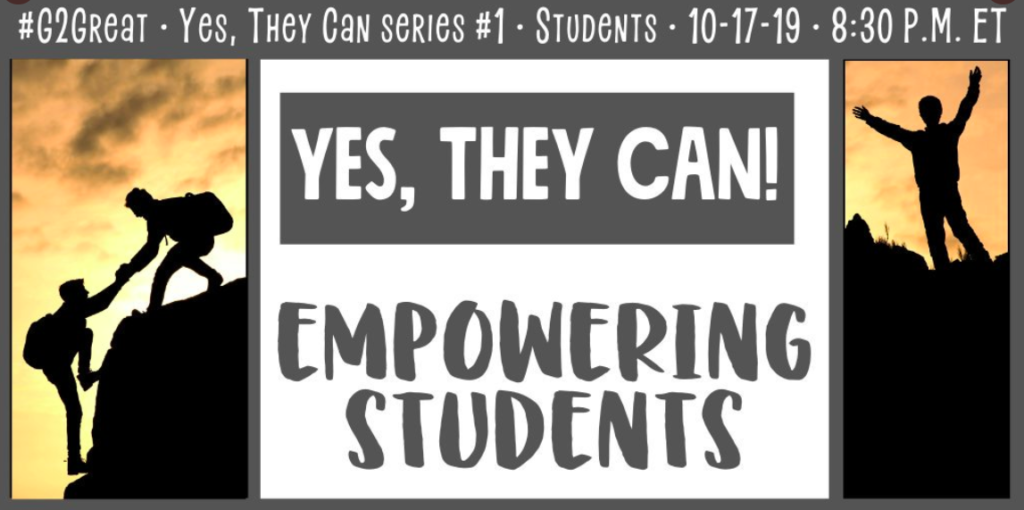
by Valinda Kimmel
You can find the Twitter chat from 10.17.19 in its entirety here.
There is interesting research on the effects of positive expectations as it relates to student performance. This is commonly known as the Pygmalion Effect and originates from the character in Greek mythology who fell in love with a creation of his own–a sculpture. The goddess of love, Aphrodite, subsequently fashioned the work of art into a live being.
Researchers Robert Rosenthal and Lenore Jacobson shared their findings on this effect. To test their hypothesis, the researchers gave teachers incorrect information about some of their students. They related that a handful of children were high achievers and that teachers could expect performance equal with the students’ intellectual abilities. This information was not accurate as the students of which they spoke were simply chosen at random. Rosenthal and Jacobson returned at years end to collect information regarding the “high-achieving” students.
You might be surprised to discover that–
- The students who were pointed out to their teachers by the researchers as high-achieving showed to be those who experienced greater academic gains by end of year. It was found that this most likely occurred as a result of high expectations of students, based on their perceived abilities, which in turned affected teacher behavior.
- This Pygmalion effect seemed to be more profound in younger students, ages seven to eight. That particular group of students experienced a gain, on average, of 10 verbal IQ points as compared to student in the control group.
- Interestingly enough students’ performance was not dependent upon their skills and ability. Students in both high- and low-ability were equally affected by the teachers’ preconceived notion that students were high-achieving.
So, why is this important and what does it have to do with our series here at #g2great?
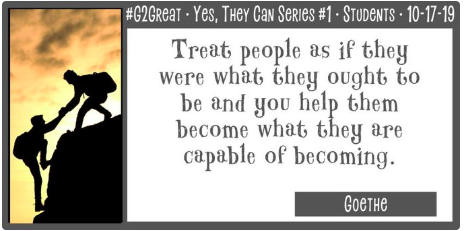
It’s important because we often see the opposite occurring in classrooms with which we are most familiar. The antithesis of the Pygmalion Effect is the Golem Effect. The Golem Effect is characterized by teachers having low expectations. These low expectations most often lead to student underperformance and a so called self-fulfilling prophecy, i.e., students fail as they do not see themselves as able to perform academically because sadly, neither have their teachers believed in their ability to achieve and therefore behave as though the students are unable to succeed.
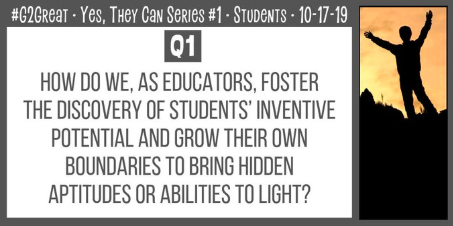
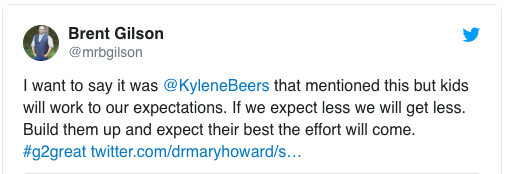
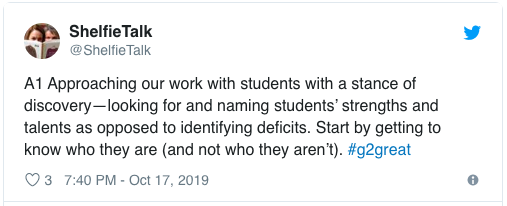
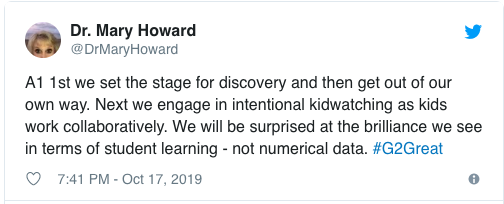
Teachers do have a large part to play in student achievement beyond their content knowledge. Change in attitudes, discovering (and eliminating) bias in regard to what students are capable of achieving and the use of effective feedback to guide students toward realizing their innate potential are all critical for student growth and achievement.
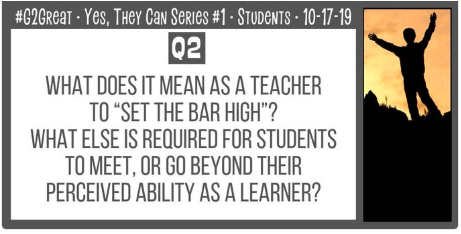
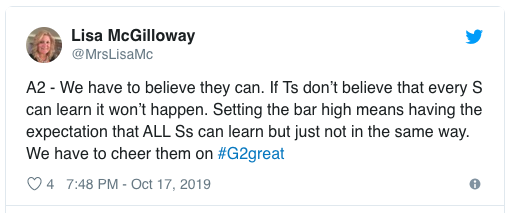
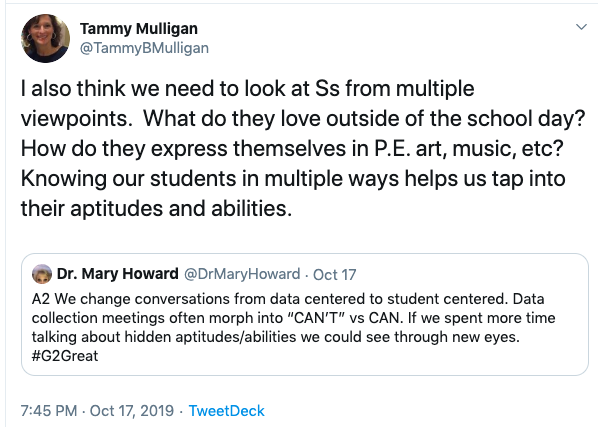
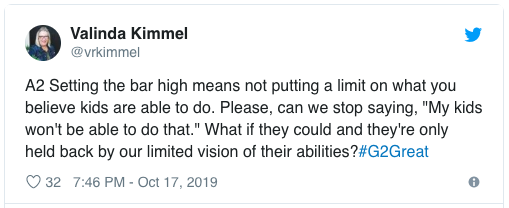
It’s important to note that high teacher expectations alone will not help some students. Additional research findings posit that it is critical for teachers to also challenge (and support) students toward high expectations of themselves in order to see the full effects of positive expectancy.
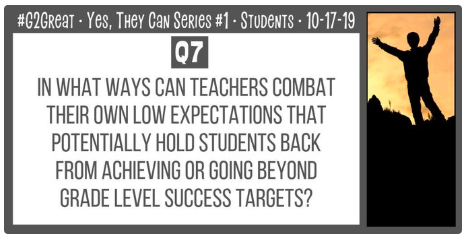
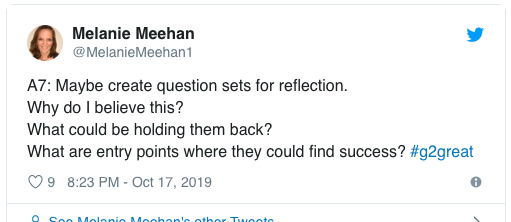
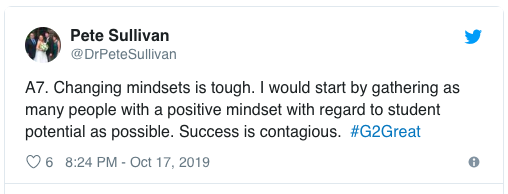
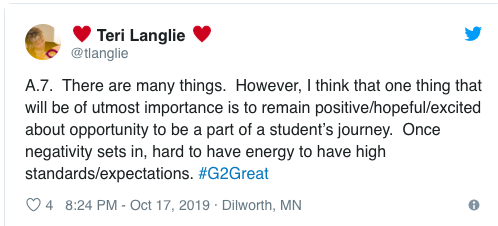
And so where do we begin?
Few individuals are prone to rise when expectations are low. We must challenge ourselves as educators to maintain high expectations for each and every student. Subsequently, we must provide the most effective and timely support for students to then achieve and grow. Rosenthal and Jacobson noted, “when teachers expected that certain children would show greater intellectual development, those children did show greater intellectual development”.
That, my esteemed colleagues, indicates causality.
Can we, as educators, commit to high expectations for ALL students? We must align our attitudes and behavior to express high standards, believe all students can (and mostly certainly will) learn. We must ensure that we provide the most effective differentiation as a means of support, and most importantly, never allow ourselves to lower our expectations of how learners can and ought to achieve.
Rosenthal, R, and L. Jacobsen. Pygmalion in the classroom: teacher expectation and pupils’ intellectual development. New York: Holt, Rinehart and Winston, 1968.
2 thoughts on “Yes, They Can! Series #1 Empowering Students”
Comments are closed.